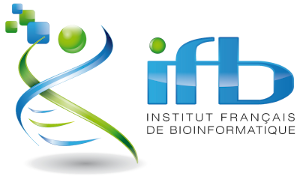GMOD
Tutorials from the world of the Generic Model Organism Database (GMOD)
GMOD is a collection of open source software tools for managing, visualising, storing, and disseminating genetic and genomic data, many of which are directly interoperable.
For any question or discussions related to this topic, or to connect with others in the community, please visit the community chat:
Material
You can view the tutorial materials in different languages by clicking the dropdown icon next to the slides (slides) and tutorial (tutorial) buttons below.JBrowse 1
Learn to use JBrowse v1 here.
MAKER
Genome Annotation with MAKER.
| Lesson | Slides | Hands-on | Recordings | Input dataset | Workflows |
|---|---|---|---|---|---|
| Genome annotation with Maker (short) | |||||
| Genome annotation with Maker |
InterMine
InterMine is a data warehouse you can query for interesting features and data.
| Lesson | Slides | Hands-on | Recordings | Input dataset | Workflows |
|---|---|---|---|---|---|
| InterMine integration with Galaxy |
Apollo v2
Apollo is a collaborative, real time genome annotation editor.
| Lesson | Slides | Hands-on | Recordings | Input dataset | Workflows |
|---|---|---|---|---|---|
| Refining Genome Annotations with Apollo (prokaryotes) | |||||
| Refining Genome Annotations with Apollo (eukaryotes) |
Editorial Board
This material is reviewed by our Editorial Board:
Contributors
This material was contributed to by:
Funding
These individuals or organisations provided funding support for the development of this resource







